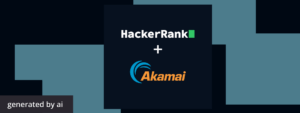
In an era where technology continually reshapes how businesses operate, Akamai stands at the forefront of innovation, particularly in its recruitment processes. Kurian Thomas, Head of Talent Acquisition for Akamai in India, sheds light on how Artificial Intelligence (AI) has become a pivotal tool in enhancing their hiring methodology, specifically by minimizing bias and streamlining candidate evaluation.
Tackling Bias with AI
Historically, recruitment processes have been susceptible to various forms of bias, including educational, gender, experience, and company-related biases. These biases not only hinder diversity but also prevent the hiring of potentially outstanding candidates based on their innate talents and skills. Akamai has turned to AI to address this challenge head-on. AI’s ability to impartially evaluate resumes based on skills and potential has significantly reduced these biases, ensuring a more equitable hiring process.
By leveraging AI algorithms, Akamai has been able to systematically analyze resumes and profiles, focusing on the competencies and capabilities that are most relevant to the roles being filled. This technology sifts through the data with an objective lens, unaffected by the biases that can influence human decision-makers. The result is a selection process that prioritizes merit, skill, and potential, creating a more diverse and inclusive workforce.
Kurian Thomas recognized early-on the transformative potential of AI in redefining the recruitment process. “Our goal was to dismantle the barriers that biases erected in our path to finding the right talent. AI emerged as a potent tool in our arsenal, enabling us to look beyond the conventional markers of a candidate’s worth,” says Kurian. This vision led to the adoption of AI-driven processes designed to evaluate candidates based on their skills and potential rather than their backgrounds or identities.
Enhancing Candidate Experience with HackerRank
In the digital age, creating a seamless and fair recruitment process is crucial, especially for companies like Akamai, where remote work is prevalent. The company’s strategic use of HackerRank exemplifies how technology can be leveraged to not only assess technical skills accurately but also to uphold the integrity of the evaluation process.
HackerRank’s proctoring features are at the forefront of combating malpractices, a common concern in remote hiring scenarios. These features ensure that the candidate’s performance accurately reflects their abilities, thereby fostering a level playing field. This technology has become indispensable for Akamai, particularly when conducting remote interviews, hackathons, and technical tests across colleges. By filtering out malpractices, HackerRank helps Akamai identify genuine talent efficiently and effectively.
Kurian Thomas emphasizes the importance of this approach in maintaining the quality of their hiring process: “The proctoring features of HackerRank have been a game-changer for us. It’s not just about filtering out candidates who try to circumvent the system; it’s about ensuring that every candidate we consider has been evaluated fairly and accurately. This has a profound impact on the candidate experience, as it reassures them that their skills and potential are what truly matter to us. In a way, it democratizes the recruitment process, making it more about merit and less about shortcuts.”
The positive implications of such a system extend beyond just the hiring process. By ensuring a transparent and equitable evaluation, Akamai reinforces its commitment to meritocracy and fairness, values that resonate well with prospective employees. Moreover, this approach significantly enhances candidate experience by providing a clear and honest assessment environment, setting the stage for a healthy and productive employer-employee relationship from the outset.
In summary, the utilization of HackerRank not only streamlines Akamai’s recruitment process but also significantly enhances candidate experience by ensuring fairness and transparency. This strategic adoption of technology underscores the company’s commitment to integrity and equality in its hiring practices, setting a benchmark for the industry.
Measuring Success
The effectiveness of AI in recruitment at Akamai is measured through various metrics, including the efficiency of moving from interview stages to offer stages and the ability to handle a high volume of applications. For example, a single senior software engineer position can attract thousands of applications. AI’s capability to stack rank and calibrate resumes has been invaluable, allowing recruiters to focus on the most relevant candidates, thus saving time and resources.
Conclusion
As Kurian Thomas shared, the journey of integrating AI into Akamai’s recruitment processes has been both challenging and rewarding. The strategic use of AI has significantly reduced biases, improved operational efficiency, and enhanced the candidate experience. This innovative approach not only positions Akamai as a leader in leveraging technology for recruitment but also serves as a model for other organizations to follow.
